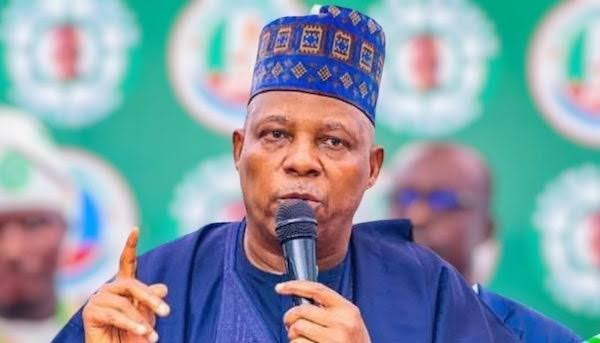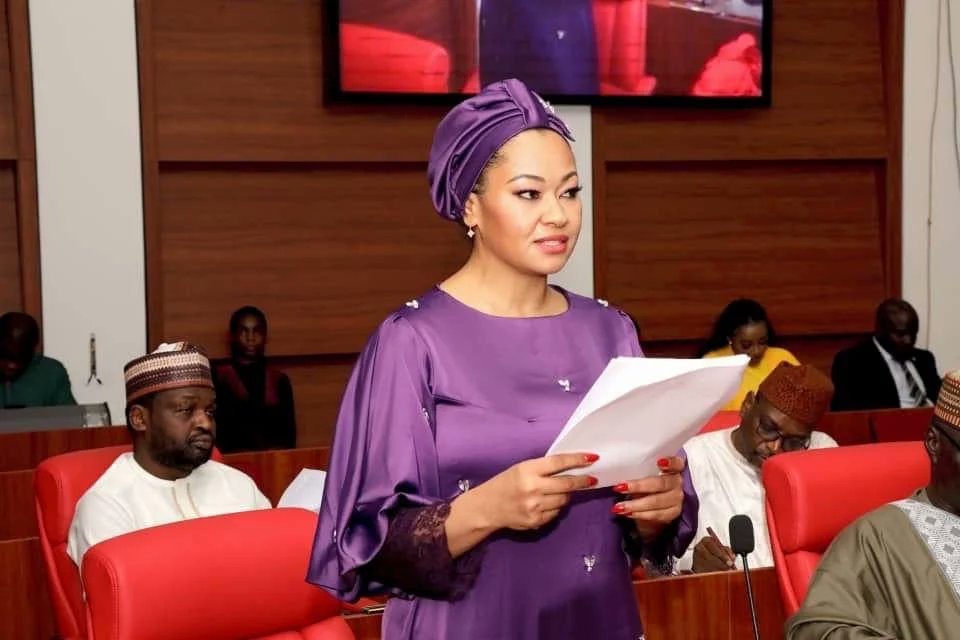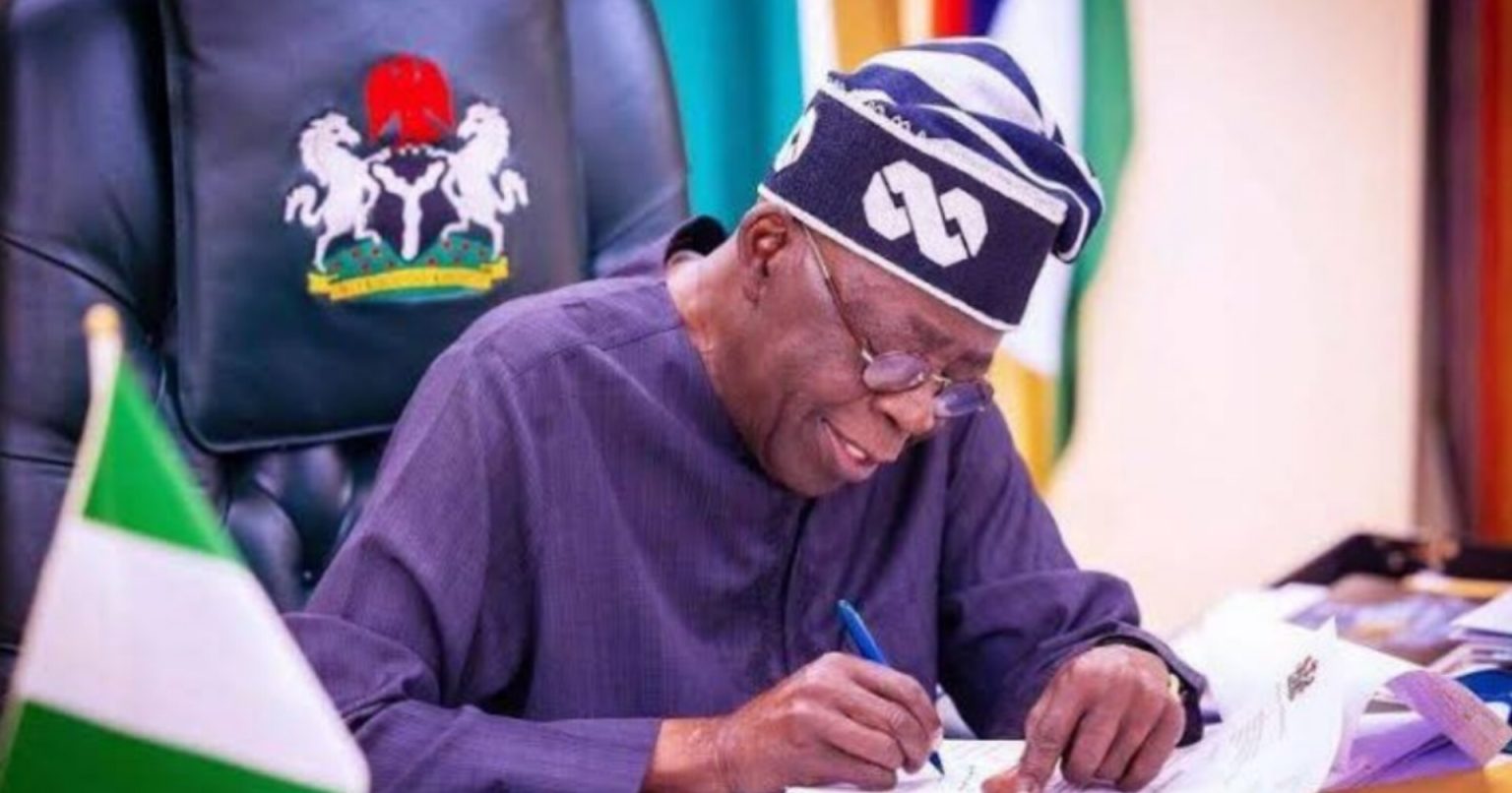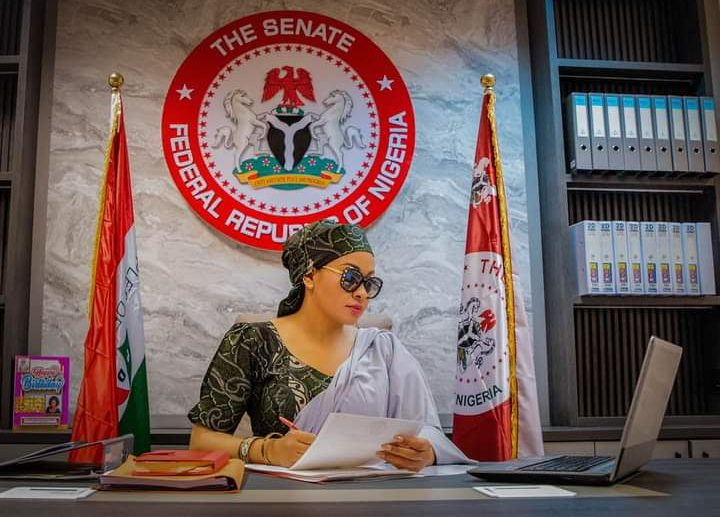News
Human capital index: We’ll position Nigeria among top 80 countries — Shettima

The Vice President, Kashim Shettima has assured of the Federal Government’s resolve to position the nation among the top 80 countries on the global Human Capital Index (HCI) by building a healthier, better-educated, and empowered Nigeria.

He stated this on Friday while inaugurating the HCD 2.0 Strategy during a meeting of the Steering Committee of the Human Capital Development Programme at the Presidential Villa, Abuja.

The task, he said, is ambitious but quite achievable, just as he called on all Nigerians, including policymakers and community leaders, to embrace the Human Capital Development Programme.
He said: “Our targets are ambitious, yet achievable. We aim to position Nigeria among the top 80 countries on the Human Capital Index, reaching a score of 0.6 by 2030.
“These metrics represent more than just numbers; they signify the real change in the lives of our people—access to quality healthcare, improved educational outcomes, expanded opportunities for meaningful employment, and a society that remains resilient in the face of global challenges.
“As we inaugurate HCD 2.0, I call on every Nigerian—policymakers, community leaders, and citizens alike—to recognise the stakes and embrace the promise of this initiative. Building a healthier, better educated, and empowered Nigeria relies on each of us contributing to a legacy of progress and possibility.”
The Vice President recalled how Nigeria had faced what he described as a stark reality in 2018 when the nation’s ranking on global human capital indices showed critical gaps in health, education and employment.
The urgency to address the embarrassing situation, according to him, compelled the Nigerian government to prioritise human capital development, leading to the launch of HCD 1.0 to build a healthy, educated, and productive Nigeria by 2030.
Describing the launch of the HCD 2.0 as the beginning of a new phase, Shettima said, “We have laid a strong foundation, and now, we officially launch the second phase of the Human Capital Development strategy—HCD 2.0.
He said, “This initiative represents far more than a programme. It is a national commitment, a promise to the well-being, empowerment, and productivity of every Nigerian. It embodies a vision that speaks to the aspirations of each citizen and affirms our shared goal: a healthier, more educated, and more inclusive Nigeria.”
Shettima explained that the goal of the HCD 2.0 Strategy is to make sure no Nigerian is left behind as the nation navigates towards a more inclusive, sustainable society, even as he listed the core pillars of the strategy to include equitable and modern healthcare, an inclusive, functional education system, as well as promotion of financial inclusion nationwide.
He continued: “One of the core pillars of HCD 2.0 is equitable and modern healthcare. We envision a system that reaches every Nigerian, regardless of their location or economic standing. Through digital health platforms, innovative financing, and climate-resilient practices, we aim to create a healthcare system that serves all.
“Alongside healthcare, we are transforming our approach to education. We are committed to fostering an inclusive, functional education system that prioritises digital literacy, gender equity, and financial accessibility.”
In an era of digital transformation, VP Shettima explained that HCD 2.0 is targeted at bridging the digital divide and promoting financial inclusion across Nigeria.
“By advancing fintech solutions, online banking, and digital payment systems, we are creating pathways for every Nigerian to actively participate in the economy,” he added.
The Vice President stated however that the HCD 2.0 will not be achieved without “a broad governance framework that brings together federal and state leaders, private sector partners, civil society, and development agencies.”
He assured that with the backing of the HCD Programme Steering Committee, which he chairs, as well as leaders from both public and private sectors, the federal government will smoothly and efficiently execute the HCD 2.0 strategy.
Earlier in her presentation, Special Adviser to the President on National Economic Council (NEC) and Climate Change, Rukaiya El-Rufai, said the new programme aims to enhance human capital outcomes by focusing on education, health, and workforce development, building on the progress of its predecessor, HCD 1.0.
“The HCD 2.0 Program is designed to elevate Nigeria’s Human Capital Index (HCI) and ensure our country is equipped to face both national and global challenges, including climate change and digital transformation,” El-Rufai stated.
She highlighted the importance of robust Monitoring, Evaluation, Accountability, and Learning (MEAL) processes to ensure transparency and effectiveness in tracking progress.
“We are committed to closing critical gaps in health, education, and labour force participation while promoting sustainability and inclusivity in all our efforts,” she added.
Meanwhile, Vice President Shettima also inaugurated the National Flood, Erosion, Drought, and Desertification Management Council (NFEDDMC).
The council’s mandate is to establish a comprehensive approach to combating the growing challenges of environmental and climate-induced disasters, focusing on collaborative efforts across government agencies and regions.
Speaking at the event, he stressed the need for a unified response to natural disasters that have increasingly impacted Nigeria.
“This council will chart a new course in the management of nature-induced disasters, moving beyond siloed efforts and fostering a collaborative, resource-sharing model for optimal performance,” he stated.
The creation of the council followed recommendations from an updated roadmap on disaster management, developed by a committee led by Kogi State Governor, Usman Ahmed Ododo, under the direction of the National Economic Council (NEC).
Shettima acknowledged the accuracy of Nigeria’s weather predictions this year, crediting local agencies for their efforts and urging all departments to “continue acquiring the latest technology and expertise to better serve our communities.”
The NFEDDMC’s responsibilities include advising the federal government on disaster management strategies, developing a national disaster management strategy with immediate, medium, and long-term measures, and enhancing public awareness of climate resilience practices.
According to Shettima, each agency involved must be prepared to act promptly, as environmental disasters often require urgent responses.
The Vice President expressed confidence in the council’s ability to confront the challenges posed by climate. “The journey ahead is challenging, but I believe in the expertise and resolve of our team. Together, we can build a more resilient Nigeria,” he noted.
The Vice President is the chairman of the council, with Governors of Kogi, Bayelsa, Oyo, Ebonyi, Bauchi and Jigawa States as members.
Others members are Minister of State, Water Resources & Sanitation; Minister of State for Environment; Directors-General of Nigeria Hydrological Services Agency, Nigeria Meteorological Agency, National Water Resources Institute, and National Emergency Management Agency.
Others include Managing-Directors of National Inland Waterways Authority, Niger Delta Development Commission, North East Development Commission and representatives of development partners.
Credit: Tribune

News
BREAKING: INEC confirms contact details, begins recall process of Senator Natasha from Senate

The Independent National Electoral Commission, INEC, has confirmed that the representatives of the petitioners seeking to recall the Senator representing Kogi Central Senatorial District have now provided their contact details.

In a statement on Wednesday, INEC’s National Commissioner and Chairman, Information & Voter Education Committee, Sam Olumekun, said:

“The contact address of representatives of the petitioners, their telephone numbers, and e-mail addresses have now been provided in a letter addressed to the Chairman of the Commission.”
He added that INEC has formally notified the senator about the recall petition.
“As provided in Clause 2(a) of the Commission’s Regulations and Guidelines for Recall 2024, a letter has been written to notify the senator sought to be recalled about the receipt of the petition and delivered to her official address,” Olumekun stated.
He further explained that the same letter had been copied to the presiding officer of the Senate and published on the Commission’s website.
Speaking on the next step, Olumekun said INEC would now verify the signatures to ensure that more than 50% of registered voters in Kogi Central signed the petition.
“This will be done in the coming days. The outcome, which will be made public, shall determine the next step to be taken by the Commission,” he said.
Olumekun reassured Nigerians that the recall process would be conducted in an open and transparent manner.

News
Lado commends President Tinubu for assenting to South-South, South West Commission bills

The Special Adviser to President Bola Tinubu on Senate Matters, Senator Basheer Lado, has commended his principal for assenting to South West and South – South Development Commissions Bills as well as the Nigeria Anti – Doping Bill 2025.

Senator Lado who made the commendation in a personally signed statement, described presidential assets to the bills as monumental milestone and testament to visionary leadership and national progress.

The statement reads: “I extend my warmest congratulations to President Bola Ahmed Tinubu, for yet another historic achievement his decisive and visionary assent to the South-West Development Commission Bill, the South-South Development Commission Bill, and the Nigeria Anti-Doping Bill, 2025.
“These landmark legislations are a clear reflection of President Tinubu’s relentless commitment to inclusive governance, equitable progress, and Nigeria’s emergence as a global powerhouse.
“His Excellency has once again demonstrated that leadership is not merely about policies—it is about impact, legacy, and a deep-rooted dedication to uplifting every citizen.
“By signing into law the establishment of the South-West and South-South Development Commissions, President Tinubu has reaffirmed his role as a transformational leader who prioritizes regional empowerment, economic expansion, and infrastructural excellence.
Building on the foundation of his earlier assent to the South-East and North -West Development Commissions, it is evident that President Tinubu is deliberate in bringing development across all regions.
“These commissions will serve as catalysts for industrial growth, job creation, and social advancement—ensuring that every corner of Nigeria benefits from his administration’s progressive vision. This is the mark of a true statesman—one who understands that a nation’s strength lies in its ability to uplift all regions without bias.
“In the same vein, the Nigeria Anti-Doping Bill, 2025 is yet another bold step that solidifies Nigeria’s commitment to fairness, excellence, and integrity in global sports.
“President Tinubu has once again positioned Nigeria as a nation of high ethical standards, ensuring that our athletes compete on the world stage with honor and credibility. By domesticating the UNESCO International Convention Against Doping in Sports, his administration has safeguarded the future of Nigerian sports, protecting our athletes from unfair practices while reinforcing our global reputation as a country that upholds integrity.
“This momentous occasion underscores President Tinubu’s unmatched leadership—one that is proactive, decisive, and deeply attuned to the needs and aspirations of the Nigerian people.
His ability to enact groundbreaking policies that foster unity, drive economic prosperity, and elevate our international standing speaks volumes of his unwavering dedication to national transformation”.

News
BREAKING: Key contact details missing in petition to recall Senator Natasha Akpoti-Uduaghan – INEC

The Independent National Electoral Commission, INEC, has acknowledged receiving a petition for the recall of the Senator representing Kogi Central Senatorial District but noted that key contact details of the petitioners were missing.

In a press release signed by Sam Olumekun, the National Commissioner and Chairman of INEC’s Information and Voter Education Committee, the commission stated that the petition was submitted with six bags of documents containing signatures from more than half of the 474,554 registered voters in the district.

However, the covering letter only provided a general location, “Okene, Kogi State,” without a specific address or multiple contact numbers as required by INEC’s regulations.
INEC emphasized that the recall process is guided by the 1999 Constitution, the Electoral Act 2022, and its 2024 Regulations and Guidelines for Recall.
The commission assured that once the petition meets all requirements, it will proceed with verifying the signatures using the Bimodal Voter Accreditation System (BVAS) in an open process involving petitioners, observers, and the media.
INEC is currently making efforts to reach the petitioners through other means and urged the public to disregard speculation on social media regarding the recall process.

-

 News1 week ago
News1 week agoBill to establish National Cashew Production and Research Institute in Kogi passes first reading in Senate
-

 News1 week ago
News1 week agoReport of attack on Wike’s Port Harcourt residence false, misleading – Police
-

 News1 week ago
News1 week agoShehu Sani debunks Governor Uba Sani’s alleged diversion of LG funds, challenges El-Rufai to publicly tender evidence
-

 News1 week ago
News1 week agoPlateau gov’t expresses concern over violence in Shendam LGA, calls for calm
-

 Politics6 days ago
Politics6 days agoOpposition leaders announce coalition to challenge Tinubu in 2027
-

 Interview1 week ago
Interview1 week agoSenators Natasha-Akpabio saga should have been resolved privately – Rev. Mrs Emeribe
-

 Opinion1 week ago
Opinion1 week agoSule Lamido, PDP, and the politics of defection.
-

 Foreign4 days ago
Foreign4 days agoHouthis declare Ben-Gurion Airport ‘no longer safe’ after renewed Gaza fighting




















